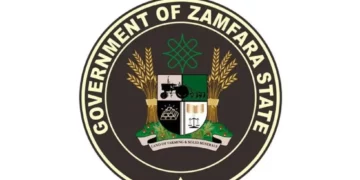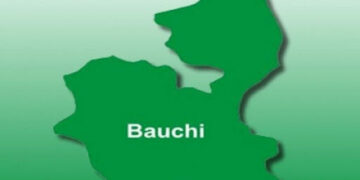A coalition of residents, the Concerned Citizens of the Federal Capital Territory (FCT), has raised an alarm over what they described as an alleged massive embezzlement scheme within the Abuja Municipal Area Council (AMAC).
At a press conference yesterday in Abuja, the group urgently called on the FCT minister, Nyesom Wike, to investigate the council over an alleged systematic stealing of public revenue and to hold those involved accountable.
But in a swift response, the leadership of AMAC categorically denied all accusations, labeling the report as highly inflammatory and unsubstantiated.
The senior special assistant on Media to the chairman, Kingsley Madaki, who spoke on behalf of the council, said the claims are “not only false but are based on a fundamental misunderstanding.”
The allegations center on AMAC’s Signpost Advert Revenue Unit, which the group claimed acts as an unauthorised technical partner.
They accused the unit of daily collecting money from the public for signpost advertisements without remitting the funds to the council, leading to an estimated annual revenue loss of ₦3 billion for the FCT.
The convener, Dr Joel Dipo, stated the group decided to speak out after its own investigations and has filed a complaint on behalf of “concerned taxpayers,” a matter already before the Court of Appeal.
“There is a fraud going on in the FCT perpetrated in the advertising industry. The Federal Capital Territory is losing an annual revenue of about ₦3 billion to miscreants, with whom they have a sharing formula,” he said.
He highlighted a jurisdictional conflict, pointing to the FCT’s Department of Outdoor Advertisement and Signage (DOAS) as the legally mandated body for revenue collection. Dipo claimed AMAC is undermining DOAS to facilitate the fraud.
“Rather, they are stealing and siphoning money through what is called the first-party advert for their selfish purposes. “They don’t allow DOAS to collect the money and remit it,” he said.
The group directly named an official, Mr. Donald Amagbo, and other AMAC officials as key actors, “On good authority, the money is shared between Donald and the AMAC officials,” Dipo alleged.
He claimed the misappropriated funds, which he estimates could exceed ₦3 billion annually, are used for personal enrichment instead of community development.
“They refuse to use it for any developmental work; they don’t construct roads. The money that goes to AMAC, they just use it anyhow, using public funds to buy perfumes, cars and clothes. The AMAC chairman is simply doing nothing.
“The minister needs to step into this matter as soon as possible. He needs to empower DOAS to collect this money in the interest of residents.
“If only the minister is just going to look away from land and look into advertisement revenues in the council, he will see how much the FCTA is losing annually on just adverts the Minister has the capacity annually to generate over ₦5 billionaire from advert,” he said.
In a swift response, the leadership of AMAC categorically denied all accusations, labeling the report as highly inflammatory and unsubstantiated.
The senior special assistant on Media to the chairman, Kingsley Madaki, while speaking on behalf of the council rejected the central claims as “not only false but are based on a fundamental misunderstanding.”
The council clarified that, for the purpose of harmonisation, it has concessioned parts of its outdoor advertisement revenue collection to DOAS.
“The allegation that AMAC’s internal ‘Signpost Advert Revenue Unit’… is currently collecting billions of Naira daily and siphoning the funds is categorically untrue and misleading.
“The claim that AMAC is ‘actively undermining DOAS to facilitate the fraud’ is therefore a complete fabrication,” he said.
AMAC challenged the financial figures presented by the group, describing the ₦3 billion loss figure and claims of funds being used for luxury items as unsubstantiated and hyperbolic presented without a single piece of verifiable evidence.
The council defended its record, stating the administration under Hon. Christopher Maikalangu is committed to transparency and community development.
It urged the public to treat the allegations with skepticism, suggesting they are a distraction from the council’s genuine efforts to improve revenue generation.




